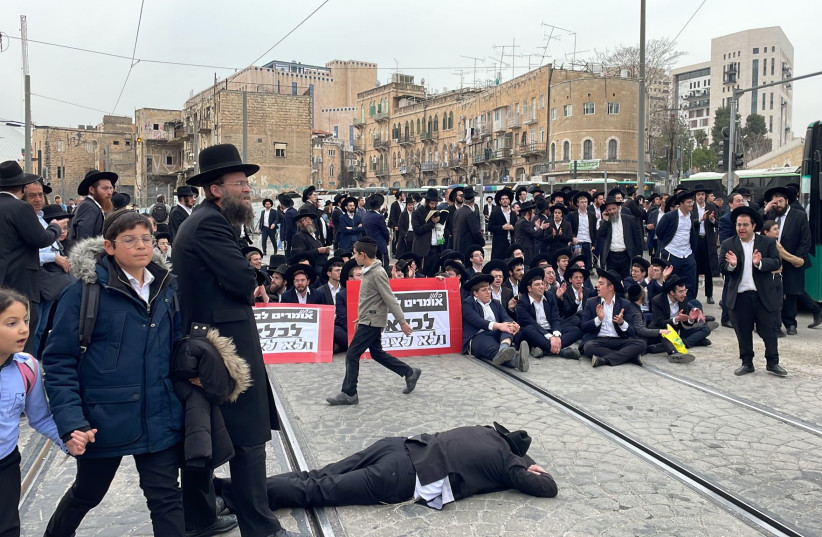Five months into the Israel-Hamas was in the Gaza Strip, MK Moshe Tur-Paz told The Media Line that while the Israel Defense Forces (IDF) was “doing a great job” in dismantling the enemy’s ability to fight, a long-term victory would require removing its desire to fight. And this will take a whole generation—"25 years at least”—of peace education to change people’s mindset from being in a “fighting zone” to a “peace zone.”
For more stories from The Media Line go to themedialine.org
Tur-Paz, a member of the Israeli Knesset from the Yesh Atid party with a rich background as the head of the Jerusalem Education Administration and an operations directorate officer for the Gaza Division in the Israeli Army reserves, recently delved into Israel’s difficult conflicts with the Palestinians in the West Bank and Gaza Strip and with Hezbollah in Lebanon, as well as the complex issue of integrating the ultra-Orthodox community into the IDF, in an interview with The Media Line’s Felice Friedson on the sidelines of the Jerusalem Chairman’s Conference.
Tur-Paz shared his insights and experiences, shedding light on the challenges and potential solutions for these pressing matters.
Debate within Israeli society
The integration of the ultra-Orthodox, or Haredi, community into the IDF is a topic that evokes strong opinions and significant debate within Israeli society.
“The first and easiest answer is they have to want to [join the army],” Tur-Paz told The Media Line. Before coming into politics, I built the platoons of the ultra-Orthodox in the Givati unit and in the Paratroopers. Over 1,000 ultra-Orthodox boys have served there for the last 10 years, so it can be done.”

However, he also pointed out the resistance from within the ultra-Orthodox community, stating, “The thing is, most of the ultra-Orthodox community and mainly most of their leaders don’t want it. They live easier. … This is the biggest and most important issue of Israel today.”
According to Tur-Paz, the ultra-Orthodox’s reluctance to serve in the IDF not only hinders their own community’s integration into broader Israeli society but also poses a significant challenge to the Israeli military’s operational capacity. He also argued that the current government might not be willing to take the necessary steps to integrate the ultra-Orthodox into the IDF, and that the issue could bring down the government.
Referring to the ultra-Orthodox community’s current growth rate—4%, the highest of any group in Israel—Tur Paz noted: “Without the ultra-Orthodox boys, there won’t be any army. That’s a fact!”
“So we have no chance than changing that division between the ultra-Orthodox and the Zionist people of Israel.”
The solution, according to Tur-Paz, involves creating an environment within the IDF that accommodates the religious practices of the ultra-Orthodox while still maintaining high standards of military readiness, citing the success of ultra-Orthodox platoons in recent conflicts as evidence that such a balance is achievable. “If you build a platoon and you give it the time to learn [and] the time to pray [as well as] the kashrut whatever it needs and yet you demand of it [to be involved in] building the fighting experts, they would have done it.”
Furthermore, he suggested that economic sanctions could be a tool to encourage ultra-Orthodox participation in the military, highlighting the effectiveness of such measures in the past. “It’s not such a problem like the ultra-Orthodox community is making out of it. It can be done. They have to take the action. And if they won’t take the action, we, the rest of the people [of Israel], will have to come demanding it.”
